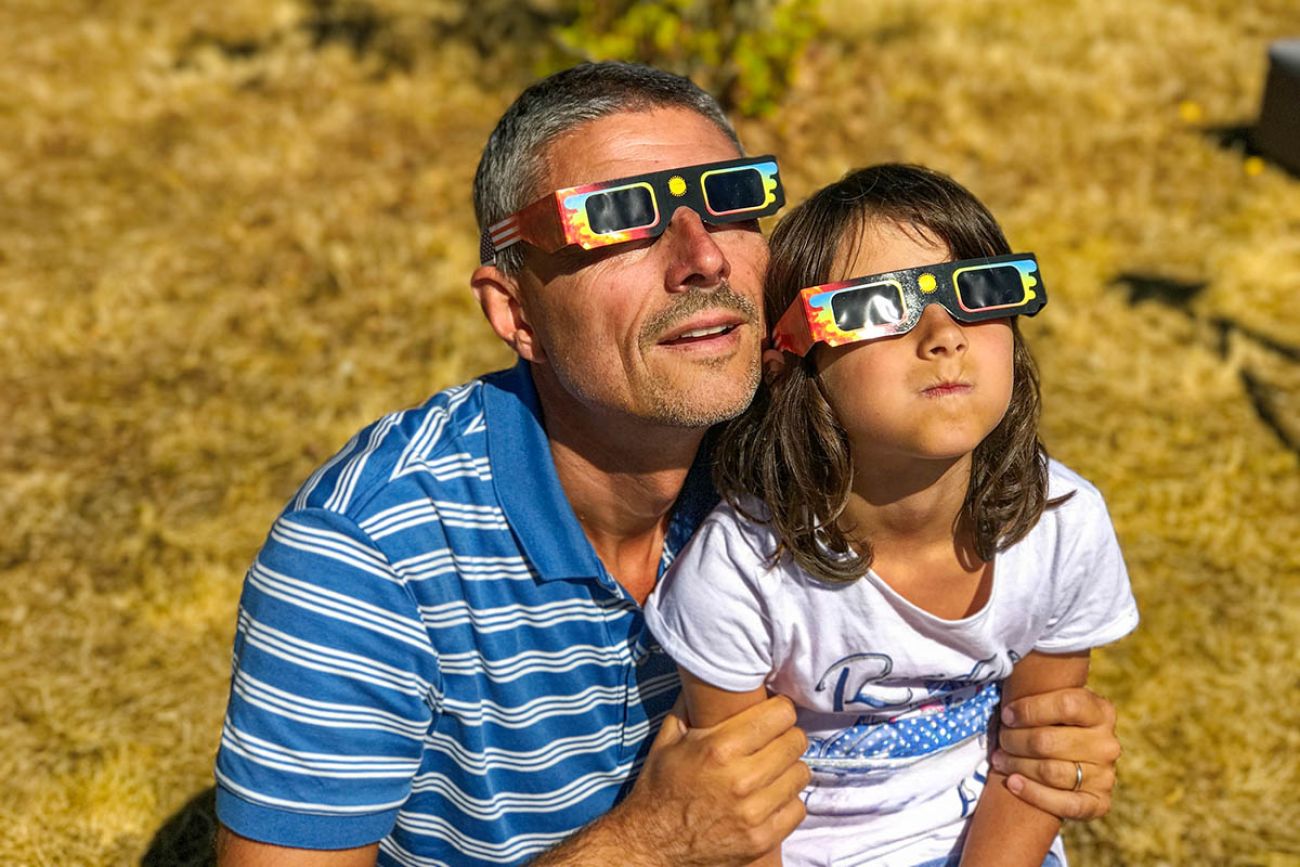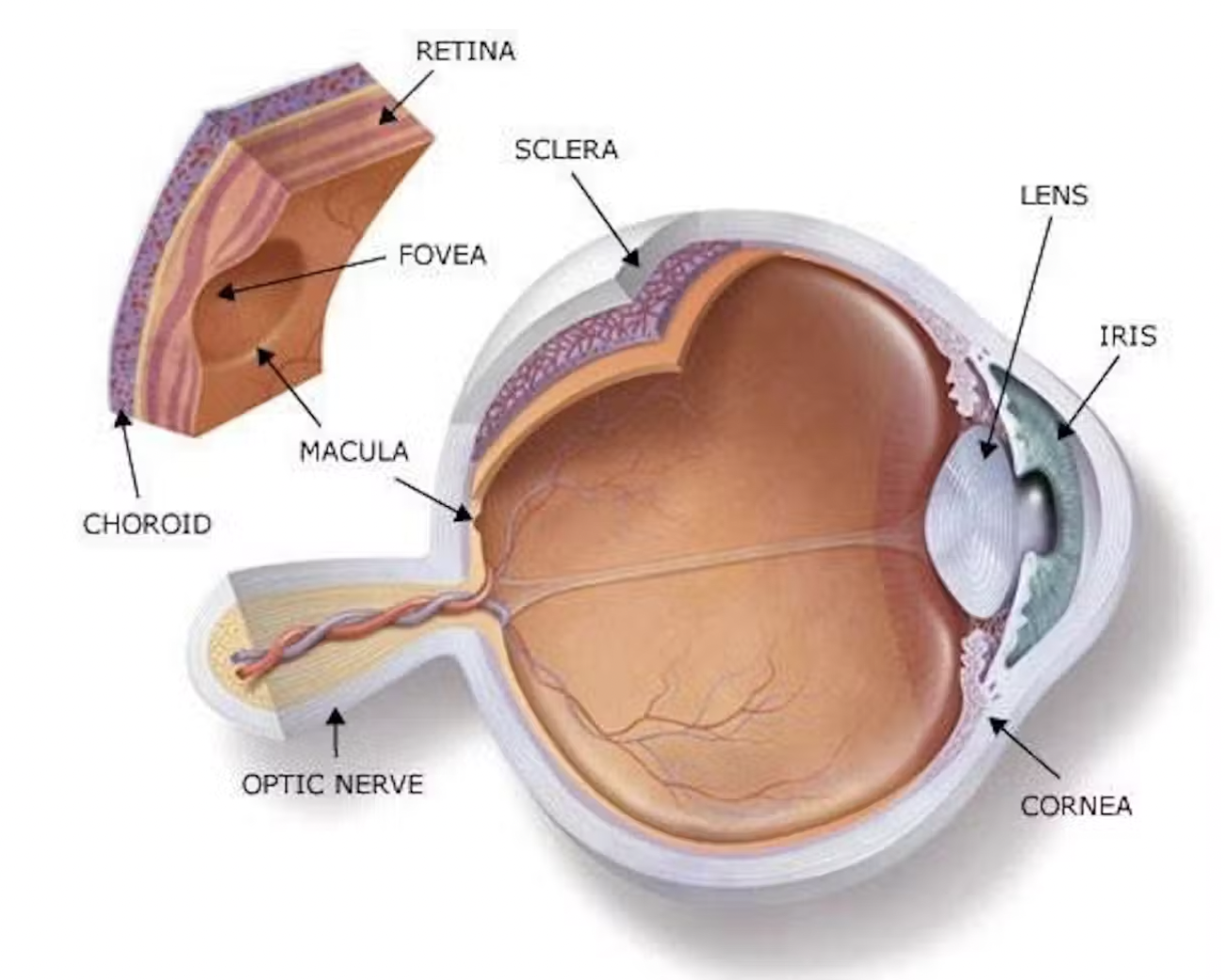Solar eclipse April 8: How Michigan residents, others can protect eyes


On April 8, 2024, and for the second time in the past decade, people in the U.S. will have an opportunity to view a total solar eclipse. But to do so safely, you’ll need to wear proper protection, or risk eye damage.

Geoffrey Bradford is a professor of Pediatrics and Ophthalmology at West Virginia University. This article is republished from The Conversation under a Creative Commons license. Read the original article.
Earth is the only planet in our solar system where solar eclipses can occur. During these celestial events, the Moon passes between our planet and the Sun, blocking the Sun and casting a shadow over the Earth. Total eclipses rarely happen multiple times in the same region of a country during one’s lifetime.
Related:
- What time is the eclipse in Michigan? Where to go and what you’ll see
- What would a solar eclipse look like from the moon? MSU astronomer answers that and more
- Solar Eclipse 2024: The only Michigan town that is in the path of totality
- Solar eclipse 2024: What will Michigan see? How to get glasses, other answers
- Solar eclipse 2024: What time and other answers from a Michigan astronomer
- What to know about the April 8 total solar eclipse in Michigan
The path of totality for this spring’s eclipse, where you can view the total eclipse, will extend over a 100-mile path that crosses through Mexico, Texas, New England and eastern Canada.
As excitement for the celestial show grows across the country, hotels in the path of totality have been booked up by eclipse enthusiasts. Museums and schools have planned viewing events, and researchers have developed technology for the visually impaired and those with hearing loss so more people have the opportunity to experience the eclipse.
Seeing an eclipse is a rare and special opportunity, but as an ophthalmologist, I know that looking directly at the Sun, even for a few moments, can severely damage your eyes. With a few easy precautions, eclipse viewers can protect themselves from severe and irreparable eye damage and vision loss.
Safe eclipse viewing
This year’s eclipse will unfold over a 75-minute period, from the moment the Moon starts to partially block the Sun until it completely moves away from it again.
During the partial eclipse period, when the Moon is partly blocking the Sun, you should never look directly at the Sun nor through binoculars, cameras or cellphones. Sunglasses, photographic filters, exposed color film and welding glasses will dim the sunlight, but these items do not prevent eye damage from the Sun’s very intense light rays.
Only solar eclipse glasses with filters designed specifically for observing the partial eclipse are safe to use. They are easily available from a variety of sources, and you can wear them by themselves or over your glasses or contact lenses.
Keep in mind that these safety filters will permit you to view only the eclipse, as they blacken out everything around you but the Sun itself. Before purchasing a pair, make sure your eclipse glasses are approved by the ISO 12312-2 international standard.
Only during its period of totality, the time when the Sun is fully behind the Moon, is it safe to remove your filtered glasses – and then only with caution.
This year, totality will last an unusually long four and a half minutes. If you leave your eclipse glasses on, you will miss seeing the Sun’s bright ring, or corona, behind the Moon. But then, as the Moon moves on, the sky will brighten and you’ll need to put the eclipse glasses back on.
Eyes and light
While the pupils of our eyes naturally constrict to limit bright light, and our eyes have pigments to absorb light, direct sunlight overwhelms these functions. Even viewing the Sun for a few brief moments can cause permanent vision loss.
The Sun emits intense ultraviolet and infrared light, which, while not visible to the human eye, can burn sensitive ocular tissues, such as the cornea and retina.

Corneal damage from sunlight, called solar keratosis, can blur vision and be quite painful. While the cornea can heal itself, it may require several days to get better and lead to lost time at work or school.
Retinal damage, called solar retinopathy, occurs inside the eye. While it isn’t painful, it can be more severe than corneal damage and can dramatically impair vision. Solar retinopathy symptoms include a blind spot in one’s central vision, visual distortions and altered color vision.
In mild cases, these symptoms may go away, but in more severe cases, and even with treatment, they may become permanent.
To both enjoy the eclipse and prevent eye damage, make sure you and your loved ones all view the event with strict proper precautions.
Michigan Environment Watch
Michigan Environment Watch examines how public policy, industry, and other factors interact with the state’s trove of natural resources.
- See full coverage
- Subscribe
- Share tips and questions with Bridge environment reporter Kelly House
Michigan Environment Watch is made possible by generous financial support from:
Our generous Environment Watch underwriters encourage Bridge Michigan readers to also support civic journalism by becoming Bridge members. Please consider joining today.
See what new members are saying about why they donated to Bridge Michigan:
- “In order for this information to be accurate and unbiased it must be underwritten by its readers, not by special interests.” - Larry S.
- “Not many other media sources report on the topics Bridge does.” - Susan B.
- “Your journalism is outstanding and rare these days.” - Mark S.
If you want to ensure the future of nonpartisan, nonprofit Michigan journalism, please become a member today. You, too, will be asked why you donated and maybe we'll feature your quote next time!




